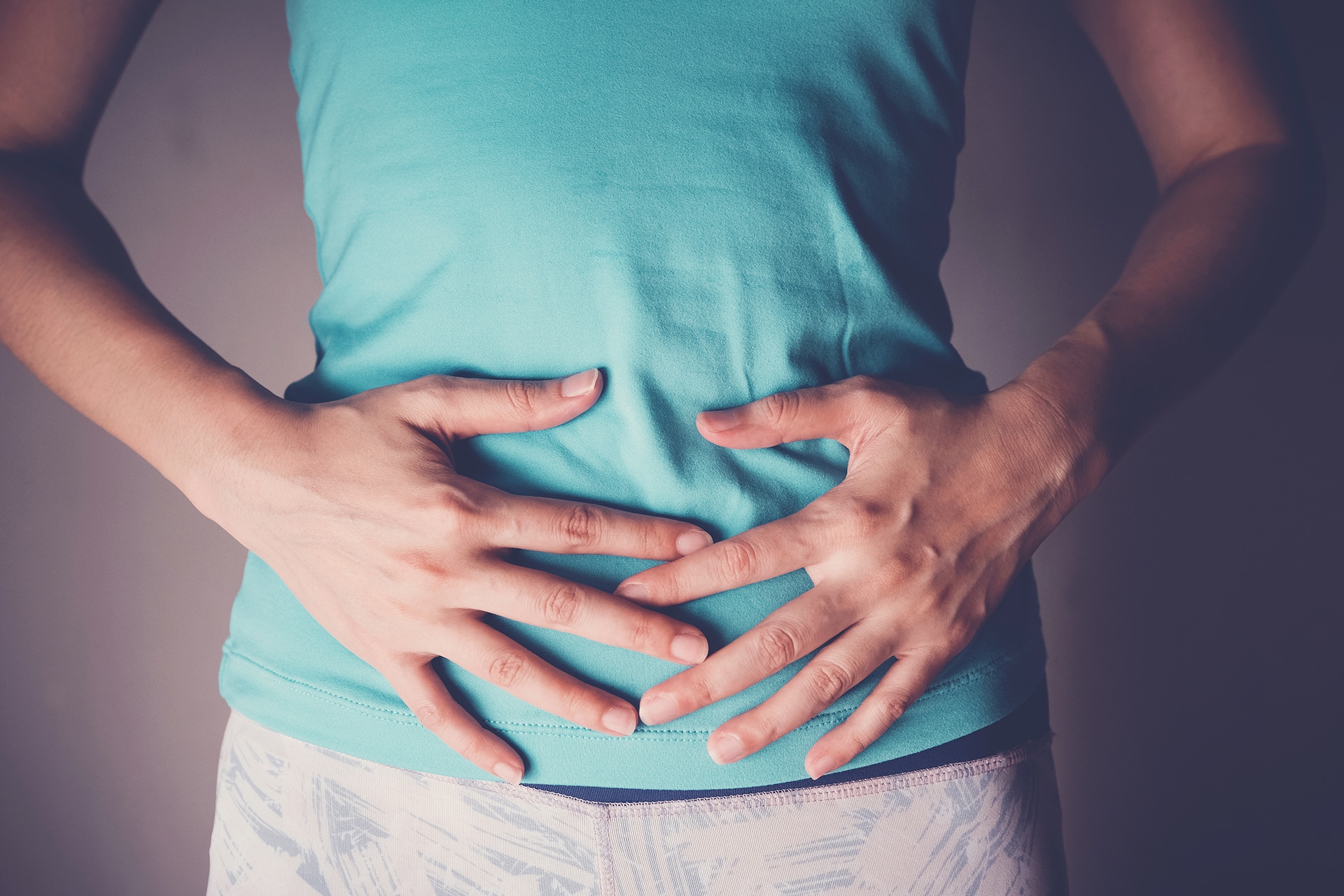Your gut is home to trillions of microorganisms (also called microbes). Most of these microbes reside in the large intestine and comprise the gut microbiome. Some bacteria, fungi, and viruses are associated with illness and disease; other microbes are vital to a healthy immune system, cardiovascular system, and much more.
A balanced gut microbiome is vital for optimal health. An imbalanced microbiome is called gut dysbiosis. Let’s look into the causes and symptoms of gut dysbiosis and how it can affect your health.

What is Gut Microbiome?
Bacteria, fungi, yeasts, and viruses are microscopic organisms called microorganisms. The digestive tract contains more than 1000 species of bacteria – beneficial microbes that aid digestion and enhance immunity and harmful microbes that can elicit disease and inflammation. They all play a role in your body, and while most are essential for your health, others can cause disease. The microbes in the gut play a crucial role in the body. The microbiome begins developing during the birth process. Over time, as a child starts consuming varying foods, the microbiome diversifies, enhancing health.
A diverse microbiome impacts the body in a variety of ways, as follows:
- Brain Health—The bacteria in the digestive tract impact brain health. A person with an imbalanced microbiome can experience brain fog, anxiety, increased stress, and mood swings.
- Diabetes—When the gastrointestinal tract becomes imbalanced, blood glucose levels increase due to insulin resistance and how the liver processes fats, leading to an increased risk of diabetes.
- Heart Health—Gut dysbiosis or an imbalanced microbiome impacts heart health and increases plaque in the arteries, which increases the risk of heart disease, stroke, and heart attack.
- Immune Health—The digestive tract houses most of the immune system. An abnormal immune response, including systemic inflammation and decreased immunity, can also occur when dysbiosis occurs.
- Digestion—When gut bacteria become imbalanced, a person can experience several digestive disturbances, including abdominal cramping, diarrhea, bloating, indigestion, and constipation.
- Weight—Gut bacteria can affect how the body digests foods, influencing the absorbed nutrients and energy storage. Those with lower gut bacteria diversity are at an increased risk of obesity.
- Vitamins—Gut dysbiosis negatively affects the body’s ability to digest foods properly, reducing the absorption of vitamins and minerals.

What is Gut Dysbiosis?
Gut dysbiosis is an imbalance in the gastrointestinal tract’s numerous bacteria, protists, fungi, and other microorganisms. When this happens, the number of harmful bacteria overwhelms the number of good bacteria.
If your gut is out of balance, your entire body will also be out of balance. Gut health affects the rest of your health.
Symptoms of Gut Dysbiosis
Digestive issues can be a real challenge to everyday life. Diarrhea, constipation, heartburn, bloating, gas, and abdominal cramps make every moment uncomfortable. At the heart of these symptoms is gut dysbiosis. A healthy, functioning gut microbiome controls gut health by communicating with the intestinal cells, digesting certain foods, and preventing disease-causing bacteria from sticking to the intestinal walls. Gut health affects your brain, heart, digestive system, immune system, blood sugar levels, and weight. The food you eat and your lifestyle choices can adversely impact the bacteria in your gut. Gut dysbiosis symptoms vary because it can affect many different bodily systems.
Below are some of the symptoms of gut dysbiosis in the gastrointestinal tract:

- Acid reflux
- Bloating
- Blood or mucus in stool
- Constipation
- Cramps
- Diarrhea
- Gas
- Indigestion
- Intestinal pain
- Irritable Bowel Syndrome (IBS)
- Leaky Gut Syndrome
- Small Intestinal Bacterial Overgrowth (SIBO)
- Nausea/vomiting
In addition, symptoms of gut dysbiosis can appear elsewhere throughout the body:
- Acne, Eczema, or other skin issues
- Anemia
- Anxiety, Depression, or Mood disorders
- Arthritis
- Behavioral changes
- Brain fog
- Candida Overgrowth
- Chronic ear infections
- Chronic sinus congestion
- Food cravings
- Inflammation
- Menstrual problems/PMS
- Migraines
- Poor immune system
- Vitamin and mineral deficiencies
- Weight gain or weight loss

Diseases Related To Gut Dysbiosis
- Since your health starts in the gut, several diseases are associated with gut dysbiosis, such as:
- ADHD
- Allergies
- Asthma
- Autoimmune diseases
- Cardiovascular disease
- Crohn’s disease
- Celiac disease
- Chronic fatigue syndrome
- Fibromyalgia
- Metabolic Syndrome
- Type 2 diabetes
Causes of Gut Dysbiosis
If gut dysbiosis is the cause of so many other health conditions, what leads to this bacterial imbalance in the first place? Below are some causes of dysbiosis:
- Alcohol – having more than two alcoholic beverages per day can lead to dysbiosis.
- Medication—Certain medications can adversely impact the composition of your gut microbiome. These include antibiotics, acid-reducing medications, over-the-counter pain relievers, steroids, and oral contraceptive pills. While each drug may have unique implications, increased production of harmful bacteria and fatty acids leads to dysbiosis and other health conditions.
- Oral health – poor dental hygiene can allow bacteria to become imbalanced.

- Diet – The food you eat greatly impacts your gut microbiome. The standard American diet tends to be high in sugar, protein, bad fats, and food additives while low in vegetables. This means you aren’t getting enough fiber to allow good bacteria to grow. It also contains a lot of carbohydrates, which crowd out the good bacteria and allow bad bacteria to flourish. Unfortunately, this can cause you to crave sugar, and the more sugar you eat, the higher your chances of developing blood sugar issues like pre-diabetes and diabetes.
- Stress – Stress weakens the immune system, making the body more vulnerable to developing an imbalanced gut microbiome. Research shows that social stressors lead to less diverse bacterial communities in the intestine and a higher number of potentially harmful bacteria.
- Sex – Unprotected sex can expose a person to various harmful bacteria.
Testing for Gut Dysbiosis
Getting tested for gut dysbiosis will help you better understand your gut’s bacterial makeup. Some standard tests include:

- Stool Test – The stool test measures the amount of good and bad bacteria in your stool. Not only does this test check for dysbiosis, but it also checks for any parasites, pathogens, yeast, and fungi that can be in the digestive system. It also provides insight into the health of your liver, gallbladder, and pancreas and the level of inflammation in your gut.
- Hydrogen Breath Test – This test measures the amount of hydrogen you exhale after drinking a sugar solution and breathing into a test tube. It checks for SIBO, fructose intolerance, and other gut issues.
- Organic Acid Test – The Organic Acid Test measures the number of organic acids in your urine. Your gut bacteria produce organic acids as by-products of metabolism. When you have too much organic acid in your urine, it may mean that certain bacteria are overtaking your gut.
Holistic Treatment for Gut Dysbiosis
Dysbiosis causes many health problems, including systemic inflammation, an increased risk of diabetes, chest pain, digestive disturbances, and fatigue. Our functional medicine clinicians specializing in gut health will create a personalized treatment plan to rebalance your gastrointestinal tract and correct gut dysbiosis. There are various options to heal your dysbiosis, such as:
- Diversity in Your Diet—A diet filled with various foods can improve your microbiome. Include organic produce, beans, and legumes to ensure your digestive tract contains beneficial bacteria.
- Fermented Foods—Fermented foods, including sauerkraut, yogurt, kefir, and kimchi, contain Lactobacilli and other healthy bacteria, which can help rebalance the gastrointestinal tract.
- Limit Antibiotics—Antibiotics kill both good and bad bacteria, negatively impacting the gastrointestinal tract. Use antibiotics only when necessary. Taking unique probiotics during treatment is also advisable, as they can offset some of the medication’s adverse side effects.
- Limit Artificial Sweeteners—Artificial sweeteners, including aspartame, stimulate the growth of Enterobacteriaceae, an unhealthy bacterium that increases blood glucose levels.
- Plant-Based Diet—Consuming more vegetables can reduce disease-causing bacteria like E. coli. A vegetarian diet also helps reduce inflammation of the digestive tract.
- Polyphenols—Polyphenols are naturally occurring compounds in whole grains, red wine, olive oil, dark chocolate, and green tea. Polyphenols break down in the digestive tract and stimulate the growth of healthy bacteria.
- Prebiotic Foods—Prebiotic foods are fiber that feeds beneficial bacteria in the digestive tract. Prebiotic foods include apples, asparagus, artichokes, bananas, and oats.
- Probiotic Foods and Supplements—Probiotics are beneficial live bacteria that can restore gut health. Probiotics reseed your gastrointestinal tract with healthy microbes.
- Whole Grains—Whole grains contain beneficial carbohydrates and fiber to feed the gastrointestinal tract’s beneficial bacteria.























